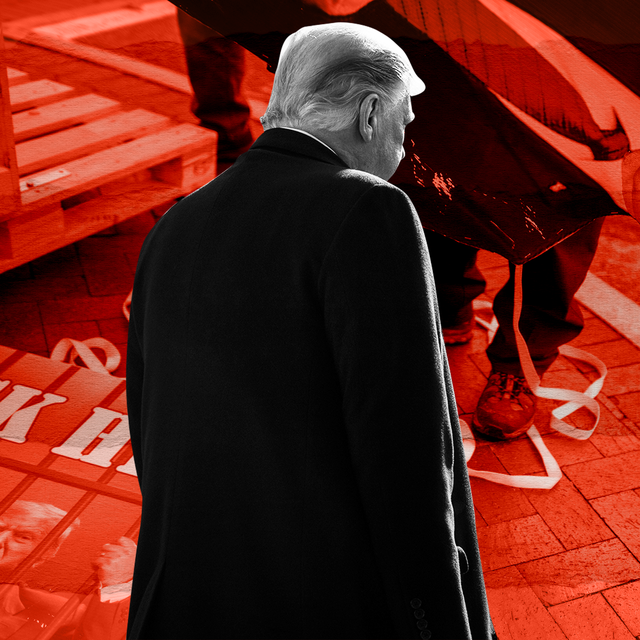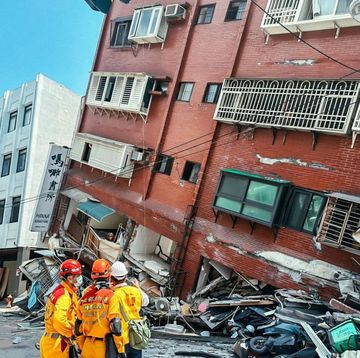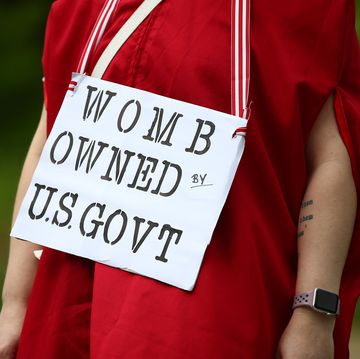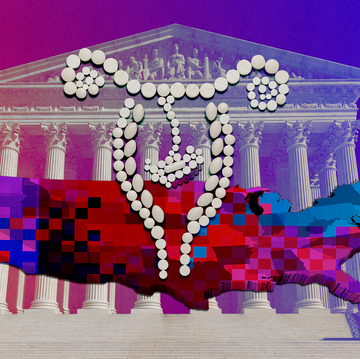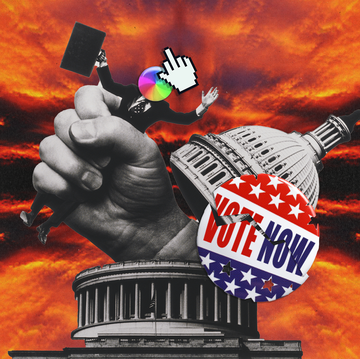As America waits for a new administration to take power in the White House, there’s also one big question that’s been on everyone’s mind: Can Donald Trump be prosecuted and held accountable for his alleged illegal activity?
His four years in office have been polluted with scandal after scandal, including two impeachments, alleged collusion with Russia, trying to interfere with 2020 presidential election results, and ultimately making history (in the bad way) by having the most number of suits filed against him in any presidency (140!).
And who could forget that in September, an investigation from the New York Times revealed that Trump has allegedly not been paying federal income taxes for more than a decade. This follows a lengthy and public audit with the IRS about the legitimacy of a $72.9 million tax refund. In layman’s terms, it means that Trump has potentially broken multiple tax laws in multiple states where he has business.
Trump is also facing several charges of sexual assault from multiple women. One example: Columnist E. Jean Carroll has accused Trump of assaulting her in the ’90s and filed a suit. As the Washington Post reported, Trump is also facing civil cases in New York from Attorney General Letitia James, a criminal probe from Manhattan District Attorney Cyrus Vance Jr., and a federal probe from U.S. Attorney for D.C. Michael Sherwin for Trump’s role in inciting riots after the Capitol building was stormed on January 6.
Phew. That’s…a lot.
To understand what might be in store for Trump and his alleged activity after he leaves office this week, Cosmopolitan spoke to attorney Danya Perry, who specializes in white-collar defense and investigations and was the former deputy attorney general for the state of New York, for her expertise in the subject matter. Here’s what you need to know.
So, is presidential immunity a thing?
Presidential immunity is a thing, but it’s not as all-encompassing as it sounds. “Broadly speaking, presidential immunity provides absolute protection to a sitting president from civil litigation for official acts taken while he—and someday, she—is president. The Supreme Court has clarified that the president does not, however, enjoy absolute immunity from civil litigation for conduct that predated his presidency,” says Perry. That means Trump could still go down for any illegal activity he was involved with before he took office. “In 2020, the Court further ruled that the president is subject to subpoenas for criminal prosecution for personal conduct, just like anyone else.”
So what’s up with the cases that have already been filed against him?
“There are a number of active lawsuits pending against Mr. Trump in his individual capacity, including most famously two defamation suits brought by women who have accused him of sexual assault,” says Perry. “In both cases, he has argued that he is immune from the pursuit of these actions during his presidency. Those arguments will go away on January 21 unless the president is impeached and convicted sooner.”
Ditto for the civil and criminal investigations that are ongoing in New York. Last August, New York Attorney General Letitia James filed a motion to compel Eric Trump and others to comply with an investigation into the the Trump Organization’s financial dealings. Trump’s own former lawyer Michael Cohen has also filed a lawsuit against the Trump Organization for millions of dollars owed in legal fees.
So, yeah, there’s a lot waiting for Trump come Thursday. “As soon as Mr. Trump leaves office, his claims of immunity go away with him and he may be pursued to the full extent of the law,” says Perry.
Will Donald Trump be prosecuted for all his alleged illegal activity, and if yes, what does accountability look like for a former president?
“The short answer is yes,” says Perry. “There has been much speculation that Mr. Trump might try to pardon himself before he leaves office. His ability to do that is legally dubious, but even if a self-pardon were able to withstand judicial scrutiny, a presidential pardon only insulates against federal prosecutions.”
That means he’s not off the hook for state or local allegations. “Accordingly, Mr. Trump still can be—and I believe likely will be—prosecuted by the NY AG or by the Manhattan DA’s office. Practically speaking, however, it is not entirely clear exactly what those criminal charges might be, how strong the evidence is, whether or not Mr. Trump would be convicted of any crimes, and, in particular, whether or not a jail term would follow a criminal conviction. But all these things are more than theoretically possible after Mr. Trump is no longer President Trump.”
